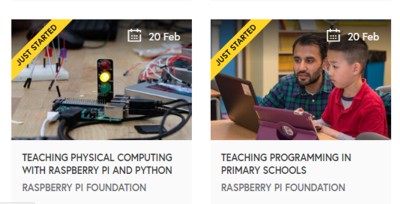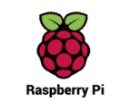| Raspberry Pi For Teachers on Future Learn |
| Written by Harry Fairhead | |||
| Monday, 20 February 2017 | |||
|
Two 4-week online courses from the Raspberry Pi Foundation have just opened on the Future Learn Platform. Although aimed primarily at teachers, anyone can enroll and the discussion boards are already buzzing.
According to the course description for Teaching Physical Computing with Raspberry Pi and Python, the Raspberry Pi Foundation's mission is: to put the power of digital making into the hands of people all over the world. The Raspberry Pi Foundation'seducation initiative Picademy already provides free training courses for teachers, and converting these into MOOCs (also free although if you want a certificate having completed it this will cost $49) is a good way to reach a wider audience. To fully participate in the 4-week Teaching Physical Computing with Raspberry Pi and Python you'll need:
The course, which is taught by James Robinson, who is Lead Trainer at Picademy, starts by introducing Python 3 using the IDLE shell and its only in Week 2 that it moves on to electronics and to physical computing - which entails using the General Purpose Input Output (GPIO pins) and flashing LEDs. As yet there's no indication how far it will go by the end of Week 4 - but it should serve as a primer for anyone wanting to get into IoT with Raspberry Pi. The other course, Teaching Programming in Primary Schools, is aimed more directly at teachers, specifically K-5 (5 - 11 years old) non subject specialists According to instructor Rik Cross it will: give a thorough introduction to programming for educators. At the end of the course you will be confident in teaching your students about algorithms, sequencing, repetition, variables and selection. You will have the chance to apply your understanding of these concepts through projects, both unplugged and on a computer, using Scratch as the programming language. Unfortunately both courses encountered video problems for a short time on their start date, February 20th. While these were quickly rectified it could have dented the confidence of students keen to get started. It did however reveal that lots of students were actively inconvenienced as the FutureLearn platform is among the best for encouraging and supporting discussion. As we reported last month, see New Magazine for Computing Education, as part of its campaign to bring computing into the classroom, the Raspberry Pi Foundation has also launched a print and online magazine for educators called Hello World. This is in addition to MagPi a monthly magazine devoted to the Pi and aimed primarily at hobbyists and makers.
More InformationTeaching Physical Computing with Raspberry Pi and Python Teaching Programming in Primary Schools Related ArticlesNew Learn To Code Course From Future Learn New Magazine for Computing Education
To be informed about new articles on I Programmer, sign up for our weekly newsletter, subscribe to the RSS feed and follow us on Twitter, Facebook or Linkedin.
Comments
or email your comment to: comments@i-programmer.info
|
|||
| Last Updated ( Monday, 20 February 2017 ) |



